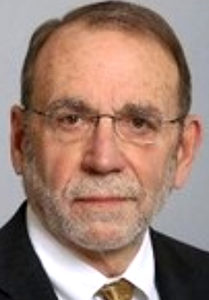CORONAVIRUS EDITION
1,000+ CALLS
TAKEN HERE
Some Tests Will Be Positive, Streck Expects
By JIM KEVLIN & ELIZABETH COOPER
Special to www.AllOTSEGO.com
COOPERSTOWN – Dr. Bill Streck, Bassett Healthcare Network CEO, told the county’s Emergency Task Force Tuesday, March 17, that there’s still a shortage of Coronavirus test kits available locally.

Nonetheless, a lot of people have been swabbed at the testing tents set up outside Bassett facilities. “They are out there, and coming back slowly,” reported county Board Chair Dave Bliss, R-Cooperstown/Town of Middlefield, who has been attending the task force meetings morning and afternoon for the past few days.
Streck “said he would not be surprised if some of them do come back positive,” said Bliss.
Still, Bliss and Task Force Chairman Allen Ruffles said, the hospital chief believes, “Things are going as well as can be expected.”
As of presstime, no cases of Coronavirus had surfaced in Otsego County, Bliss said. A Herkimer County case was being treated in Cooperstown.
Streck was meeting with the task force four days after calling a press conference at Bassett Hall, where he and three of his lieutenants, Drs. Bill LeCates, Bassett Hospital president; Steven Heneghan, clinical director, and Charles Hyman, infectious disease specialist, outlined Bassett’s protocol for tackling the disease.
The entrypoint for treatment, they said, was a newly established hotline, (607) 547-5555, that everyone with a cough, fever and other symptoms should call.
People will be reassured, or assigned to receive a swab test. Those results may lead to further evaluation. Bliss and Ruffles said many of those evaluation may be in people’s homes, via tele-medicine.
The idea is to keep people who may be infected out of the hospital, where they may spread the disease. To protect against that, on Monday Bassett also banned visitors from its hospitals.
Meanwhile, the hotline took off: More than 500 people placed calls on Monday alone. No numbers were available from Tuesday, but over the weekend, 200 people called on Saturday and 200 on Sunday.
“There is clearly a lot of demand for that phone line,” said Karen Huxtable-Hooker, Bassett spokesman. So much so that the healthcare network is looking to expand the number of staff fielding the calls.
As of Tuesday, more than 1,500 people in New York State had tested positive for the virus, up from 950 the day before; 814 of the cases were in the city. Twelve people have died from the virus in New York State, including at least seven in New York City.
About 20 percent of Bassett hotline callers are simply anxious and seeking information, and they are directed to the Bassett website or other sources that may answer their questions, Huxtable-Hooker said.
The majority of the calls are people with cold symptoms who are concerned they might have the virus. Staff questions each caller to determine their risk level, and if deemed necessary, they give them an appointment to go to one of the screening tents that have been set up at Bassett facilities. Those locations have the capacity to test for both the flu and to swab for COVID 19.
Flu tests can be processed by Basssett, but COVID 19 tests are sent to outside labs. Huxtable-Hooker could not immediately give statistics for how many COVID 19 tests had been sent out.
Individuals whose condition is more serious are routed to separate heated tents outside Bassett facilities, many of which are equipped with portable X-ray machines.
Most of those seen do not meet the risk criteria for the disease, Huxtable-Hooker said. She stressed that area residents should not go to the screening tents without first calling the hotline and getting an appointment.
Patients who are found to have the virus are sent home and must remain quarantined at home if they are not very ill. They can then be treated at home, in some cases remotely using electronic media, and only brought to a Bassett facility if it is deemed necessary.
The strategy is aimed at helping as many area residents as possible to determine if they have the virus, while protecting people with other health issues by minimizing the risk of bringing the virus into the hospital itself.
Earlier in the day Tuesday, Governor Cuomo gave a speech Tuesday sounding the alarm about the expanding scope of the COVID 19 crisis, and asked hospitals to seek ways of expanding their capacity to treat the sick ad to prepare for the worst.
“There is a curve, everyone’s talked about the height and the speed of the curve, and flattening the curve,” he said, referring to graphs seen in the media showing projected numbers of cases rising steeply past national hospital capacity. “I’ve said that curve is going to turn into a wave and is going to crash on the hospital system.”
He called on hospitals to come out of retirement to help with teh effort, and for medical students to roll up their sleeves and do what they can. Hospitals need to find room for more beds in their existing wards and locate additional spaces to expand into.
New York has 53,000 existing hospital beds and 3,000 intensive care unit beds but 19.5 million residents, he said. About 19 percent of those who become sick must be hospitalized.
Huxtable-Hooker said she believes Cuomo’s focus is largely on New York City, because it its population density. Nonetheless, she said, Bassett is expanding its bed capacity for isolation rooms to treat people with the virus.
“We have adequate physician support at this time,” she said. “Medical students at Bassett are assisting in follow-up calls to patients.
COVID 19 tests taken as part of the triage process related to the hotline have not yet come back from the outside labs, so there are no new findings to date, she said.

